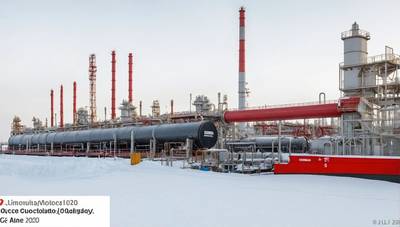EU agrees to end Russian gas imports gradually by January 1, 2020
The Council of the European Union reported that the EU energy ministers backed on Monday the proposal to eliminate Russian gas and oil imports into the EU by January 2028.
At a meeting held in Luxembourg, the ministers approved plans that would gradually phase out all new Russian gas import agreements from January 2026. Existing short-term agreements will be terminated in June 2026 and long-term arrangements in January 2028.
The law has not been finalized. The final rules must be negotiated between the EU countries and the European Parliament.
The EU wants to reduce the amount of energy imported from Russia to deny the Kremlin revenue to finance its war in Ukraine.
Russia accounts for only 12% of EU imports of gas, compared to 45% in 2022, before the Russian invasion of Ukraine. Hungary, France, and Belgium are among those countries that still receive Russian gas.
The European Commission crafted the proposals so that they could pass despite the opposition of Hungary and Slovakia, two countries who still import Russian crude oil.
The "qualified majority" of EU members states, which is at least 55%, was required to pass the bill. One or two countries could not stop it.
The text adopted on Monday allows for specific flexibilitys to be granted to landlocked members, including Hungary and Slovakia.
Robert Fico, the Slovak prime minister, defended his opposition to sanctions against Russia and the phase-out of gas and oil imports. These measures require EU consensus.
The Slovakian government has resisted the latest sanctions package due to demands related to the ending of Russian gas transit through Ukraine.
Separately the EU is currently negotiating a package of new sanctions against Russia which would ban LNG imports a year earlier, in January 2027.
Kaja Kallas, the EU's chief of foreign policy, said on Monday that a new package of sanctions could be approved this week. Bart Meijer and Kate Abnett; Jason Hovet, Inti Landauro and Jan Harvey, editors.
(source: Reuters)

